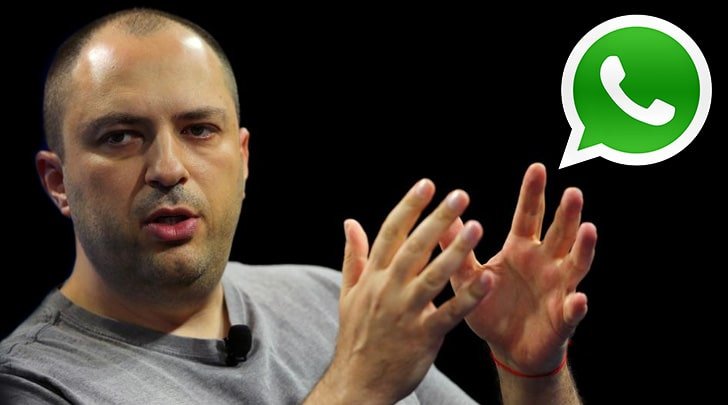Ukrainian-born American computer programmer Jan Koum works and resides in the US. He owned WhatsApp prior to it being purchased by Facebook. With an estimated worth of over $7.5 billion, he was placed 62 on Forbes’ list of the 400 richest Americans in 2014.
Early Years
Nobody today would disagree that social media platforms like Facebook and WhatsApp have become integral parts of our everyday lives. The co-founder and CEO of WhatsApp is Jan Koum. This tall, thin man probably had a terrible upbringing. Koum was born to Ukrainian parents in a little village outside of Kyiv. Koum’s early experiences in a Communist setting had a negative effect on him, which weakened his strong commitment to privacy protection.
His parents avoided communicating on the phone out of concern that they would be bugged by the government, and the house had no hot water. At the age of 16, Jan, his grandmother, and his mother and grandmother left Europe for the United States. In California, Jan’s mother worked as a childcare provider while Jan went to school and did grocery store floor cleaning.
His father had meant to move in with Jan and his mother after they had settled, but he fell ill and passed away five years later, without getting to meet them.
Only 3 years after Jan’s father passed away, Jan’s mother received a cancer diagnosis and succumbed to it. He studied computer science and mathematics at San Jose University after self-educating in network engineering, and he also participated in internet networking groups and hacker communities called w00w00 (pronounced whoo-whoo).
Career
He learned computer networking on his own during the next two years and was prepared to start his next task. At this point, he decided to enroll at San Jose State University after discovering his love for programming. He also started working for Ernst & Young as a security tester. Jan received the chance of a lifetime when he was employed at Yahoo as an infrastructure engineer after working there for roughly six months.
Self-learning
Self-learning played a crucial role in Jan Koum’s inspiring entrepreneurial journey to success. From a young age, Jan Koum exhibited a passion for computers and programming. He taught himself how to code and developed a strong foundation in programming languages. This self-taught knowledge laid the groundwork for his later successes in the tech industry.
Koum’s curiosity led him to explore various aspects of technology, even before he formally entered the tech industry. His innate curiosity about how things work and his willingness to explore new areas of knowledge likely contributed to his innovative thinking and problem-solving abilities.
Throughout his career, Koum never stopped learning. He consistently sought out ways to improve his skills, stay updated on technological advancements, and adapt to changing trends. This commitment to continuous learning allowed him to stay relevant in a rapidly evolving industry.
Yahoo and WhatsApp’s Genesis
Koum’s journey truly took off when he joined Yahoo as an infrastructure engineer. While at Yahoo, he crossed paths again with Brian Acton. Despite their relatively stable positions at the company, they felt disillusioned by the advertising-driven business model and the erosion of user privacy.
Koum and Acton left Yahoo in 2007, intending to create an application that prioritized user privacy and communication.
In January 2009, Koum and Acton began developing WhatsApp, with Koum handling the coding and Acton managing business operations. They focused on creating an app that didn’t have advertisements or the clutter of other messaging services.
Koum and Acton faced difficulties in securing funding for their startup. They initially self-funded the company by selling items like iPhones at a profit.
Initial struggles and breakthrough
WhatsApp faced initial challenges, including server crashes and difficulties in gaining traction. However, Koum’s determination and the app’s user-friendly interface attracted a growing user base. They kept the app ad-free and prioritized user privacy by using end-to-end encryption.
WhatsApp’s user base grew steadily, thanks to its user-friendly interface and the increasing demand for instant communication. The app’s focus on minimizing ads and respecting user privacy also contributed to its popularity.
In 2011, WhatsApp received a significant boost when it secured an investment from Sequoia Capital. This funding enabled the company to expand its reach and improve its services. WhatsApp’s success transcended borders, gaining immense popularity in regions where traditional SMS was expensive.
Acquisition success
WhatsApp’s impact on communication and its acquisition by a tech giant underscore the significance of Koum’s entrepreneurial spirit and innovation. His story continues to inspire aspiring entrepreneurs worldwide.
The acquisition success reflected the recognition of WhatsApp’s enormous potential and its alignment with Facebook’s mission to connect people.
Koum continued to lead WhatsApp after the acquisition, becoming a member of Facebook’s board of directors. However, in 2018, he decided to leave Facebook due to concerns about data privacy and differences in strategic direction.
After leaving Facebook, Koum focused on personal projects and philanthropic endeavors. He has invested in startups and explored interests beyond technology.
Philanthropy and giving back
Jan Koum’s success allowed him to give back to his community and make a difference. He donated to charitable organizations and supported various initiatives, particularly those focused on education and technology.





